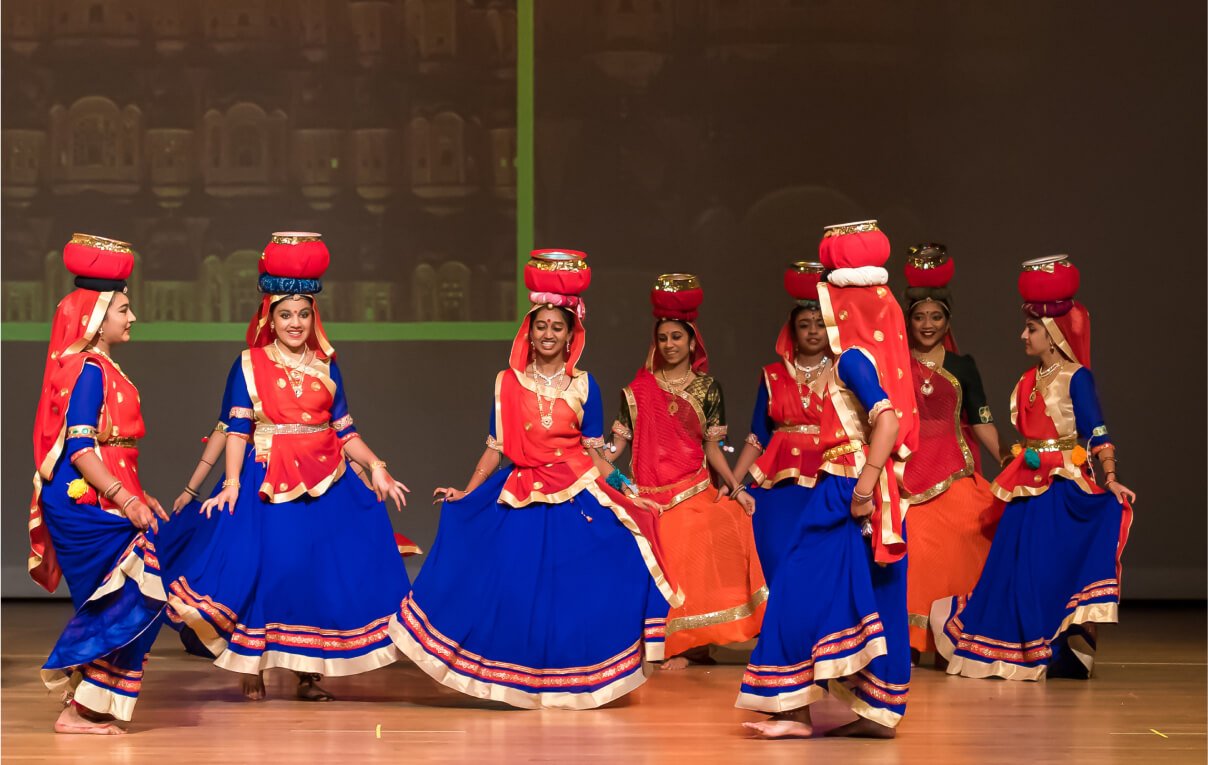folk dance
A ceremonial dance from Rajasthan's Saini community, symbolizing joy and the ritual of collecting water in a pot.

The Chari folk dance, which originated in Rajasthan, is a vibrant expression of cultural tradition and joy. While its roots lie in the communities of Ajmer and Kishangarh, the dance itself is a spectacle of grace and balance. Performed by women, it is deeply symbolic, representing the age-old ritual of fetching water, a task once central to daily life in rural Rajasthan.
Often referred to as the "Welcome Dance," this performance has been an essential part of Rajasthani celebrations for centuries, marking important life events such as the birth of a male child, weddings, and major festivals.
Students balancing a pot on their head.
The dance's signature element is the balancing of the Chari, a brass or earthen pot, atop the dancer's head, often with a lighted lamp inside, adding an ethereal glow to the performance. Women dressed in vibrant traditional attire, comprising "Ghaghra and Choli," accessorized with heavy jewelry like Hansli, Timniya, Bangdi, and armlets, move in rhythmic harmony, embodying both strength and elegance. The Chari dance draws parallels with Rajasthan’s "Bhavai" folk dance because of its similar balancing act, though the Chari is distinctly unique for the symbolic presence of the lighted pot.
Students performing the Chari dance on stage.
The Chari dance transforms into Rajasthan's traditional fire dance, further elevating its visual impact. Dancers deftly carry brass pots on their heads, containing flaming cotton seeds soaked in oil. The accompanying sounds of traditional instruments like the dholak, harmonium, and nagada add rhythm and energy, making the performance mesmerizing as the dancers create glowing, swirling patterns with their movements. The Chari dance is not just a celebration but also a visual tribute to the resilience and grace of Rajasthani women, preserving the region’s cultural essence.